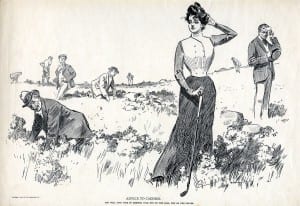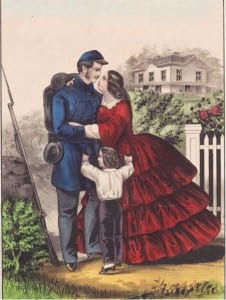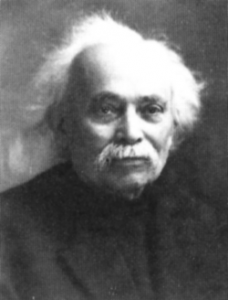On Thurs 27th April, Dr. David Ibitson will present a paper entitled ‘ “My friends have been making me take up golf”: golf and the construction of masculinity in the ghost stories of M.R. James’. Refreshments will be served at 5pm and the paper will start at 5.15pm. We are in room MB3202 in the Minerva Building.

Please find David’s abstract and biography below:
This paper will look at how the ghost stories of M.R. James engage with fin de siècle concerns about masculinity. Taking the references to golf as its focus, it investigates how these texts parody and critique ideals of Victorian manliness, highlighting a comic irony often overlooked in criticism of James’s work.
Golf’s uncertain status as a masculine activity will be shown to highlight the problematic masculine status of his protagonists as they undergo processes of enervation and infantilisation. This ambiguous manliness will then be situated in the context of contemporary urban escape programmes for young boys, illustrated by both the Boys’ Brigade and Boy Scout movements, as well as key examples of popular boy’s own adventure literature.
In acquiescing to social pressures which promote the playing of sport as a vital part of manly development, James’s protagonists evoke these social and literary source texts. Yet, their questionable masculinity, rather than merely working to utilise the men as comic currency, has the effect of resisting a muscular masculinity. In turn, the militarism of these organisations will be shown to allow James’s stories to function as attacks on popular conceptions of Imperial heroism.
James is revealed to be actively participating in contemporary discourses about nation, Empire, and masculine fitness, acting upon social and literary parodic targets as a sporting Gothic burlesque of ideas of gender and heroism.
Biography:
David gained his PhD in English Literature from the University of Leeds, with his thesis focusing on parody, depictions of Empire, and ideas of authorship in the works of the writer Jerome K. Jerome. His research interests are in Victorian and Edwardian popular culture, New Humour, adventure fiction, and literary depictions of office work. He has published on Jerome K. Jerome, Victorian popular music, urban exploration, and urban escape programmes. He is currently Subject Lead in English at the University Centre at North Lindsey College.



